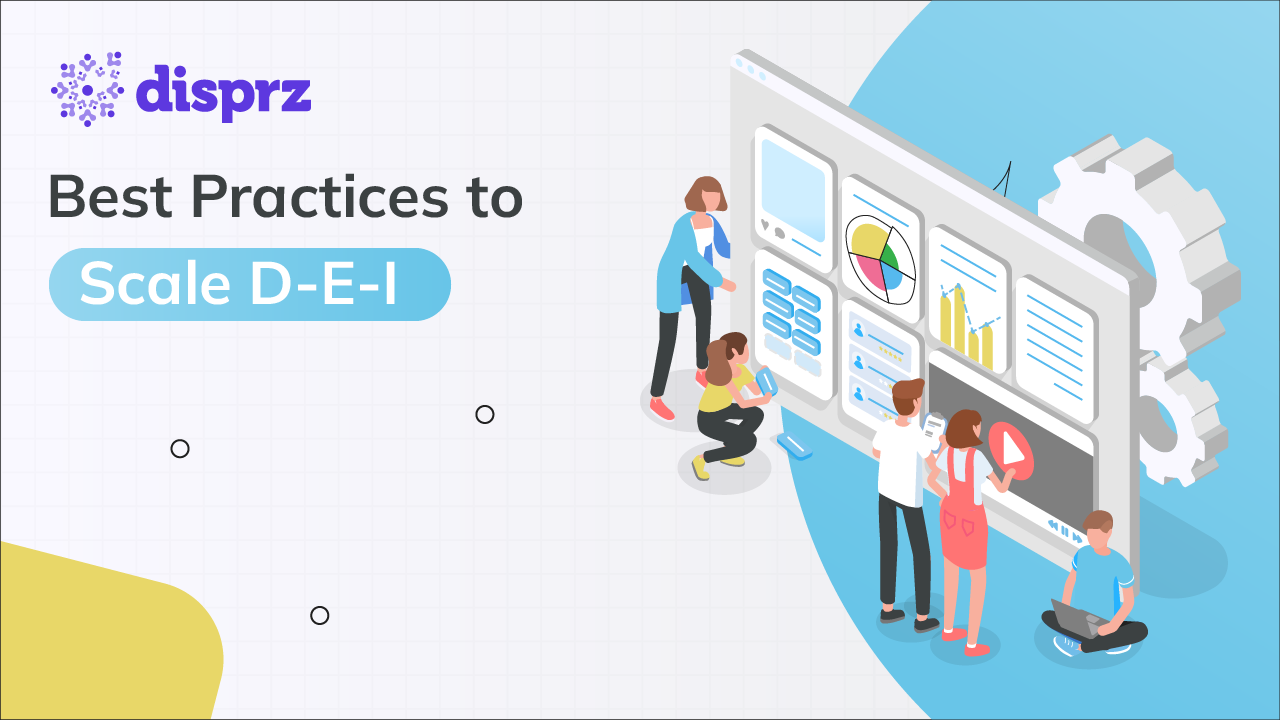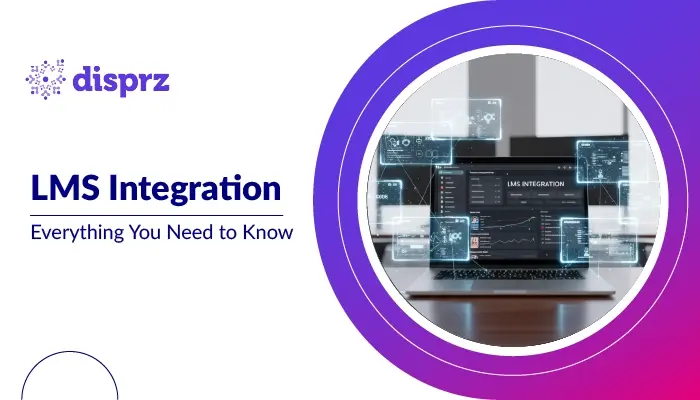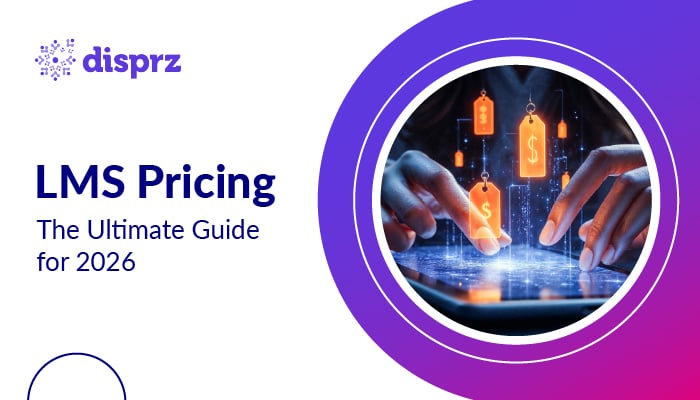In the modern workplace, the emphasis on Diversity, Equity, and Inclusion (DEI) is more than a corporate trend; it is a critical business priority. As organizations face increasing scrutiny from employees, customers, and stakeholders, scaling DEI efforts has become a top priority for 2025 and beyond. Almost 75% of HR decision-makers plan to prioritize diversity hiring, highlighting the widespread acknowledgment of DEI as a key driver of organizational growth and resilience.
Scaling DEI goes beyond setting goals; it involves embedding these principles into every layer of the organization. From inclusive hiring practices to fostering equity and a culture of belonging, scaling DEI is a continuous effort requiring robust strategies, leadership commitment, and measurable outcomes.
The Need for Scaling DEI in 2025
Promoting workplace diversity has always been essential, but the urgency has escalated. In 2025, CHROs are doubling down on initiatives to address the underrepresentation of diverse groups. This focus is driven not only by ethical considerations but also by business benefits.
Research by McKinsey underscores the financial advantages of diversity, with organizations boasting ethnically diverse executive teams being 39% more likely to achieve superior financial performance. Organizations excelling in both gender and ethnic diversity see a further 9% edge. These statistics illuminate the link between DEI and profitability, making it clear that inclusive workplaces are better equipped to outperform competitors.
Moreover, building a truly diverse workforce starts at the leadership level. By hiring diverse executives and key decision-makers, organizations set a precedent for equity and inclusion across all ranks.
Benefits of DEI in the Workplace
Scaling DEI within an organization unlocks numerous benefits that contribute to long-term success. From fostering innovation to improving employee satisfaction, a strong commitment to diversity, equity, and inclusion creates a more dynamic, collaborative learning, and high-performing workplace. The positive impact of DEI extends beyond internal culture, enhancing external relationships and business outcomes.
Major benefits are:
Better Innovation and Creativity
Diverse teams bring varied perspectives, fostering a culture of innovation. This diversity of thought drives creative problem-solving and unique solutions, positioning organizations at the forefront of their industries.
Improved Employee Engagement
Inclusivity boosts employee morale, making individuals feel valued and motivated. Gartner reports that inclusive teams improve team performance by up to 30% in high-diversity environments.
Higher Talent Retention
A strong commitment to DEI fosters loyalty, encouraging employees to stay longer with the organization, which helps reduce turnover and lowers recruitment-related expenses.
Broader Market Reach
Diverse teams bring unique insights, enabling organizations to connect with a wider audience, enhance customer satisfaction, and maintain strong market relevance.
Enhanced Decision Making
Diverse perspectives foster more informed and balanced decisions, reducing biases and driving improved outcomes across teams and organizational strategies.
Positive Organizational Reputation
Organizations with robust DEI practices attract top talent and build a strong public image. Glassdoor highlights that 76% of job seekers prioritize workplace diversity when evaluating potential employers.
7 DEI Best Practices for 2025
DEI initiatives are no longer optional; they are essential for building resilient, future-ready organizations. Scaling DEI demands more than policy changes; it requires intentional strategies that foster an inclusive culture, ensure equity, and embrace diversity at all levels.
Organizations must integrate DEI into every facet of their operations, from leadership and hiring to employee engagement and decision-making. By adopting forward-thinking practices, organizations can achieve lasting impact and drive meaningful progress in workplace inclusivity.
Here are the 7 best practices organizations can adopt to achieve sustainable progress:

1) Prioritize Inclusive Hiring Practices
Recruitment is the foundation of DEI efforts. Building a diverse workforce begins with adopting inclusive hiring practices that eliminate bias.
This involves:
-
Utilizing blind resume reviews to focus on skills and qualifications.
-
Expanding talent sourcing to underrepresented communities.
-
Training recruiters to recognize and address unconscious biases.
Investing in tools that enhance fairness in hiring decisions can further support these goals.
2) Foster Leadership Commitment
Leadership commitment to DEI is critical for its success. Diverse leadership teams set a powerful example, driving accountability and demonstrating that inclusivity is a shared responsibility. CHROs and senior executives must champion DEI initiatives, aligning them with broader organizational goals.
3) Embed DEI into Organizational Culture
A truly inclusive organization doesn’t treat DEI as a separate initiative; it integrates these principles into its core values.
Embedding DEI into culture involves:
-
Regularly communicating its importance through internal messaging.
-
Offering training programs to educate employees about unconscious bias and inclusive behaviors.
-
Celebrating cultural diversity through events, forums, and discussions.
4) Leverage Data for Continuous Improvement
Tracking and measuring DEI efforts is essential for understanding progress and identifying areas for improvement.
Organizations should:
-
Establish key performance indicators (KPIs) for diversity representation, inclusion scores, and retention rates.
-
Conduct regular employee surveys to gather feedback on inclusivity.
-
Analyze the impact of DEI on business outcomes, such as innovation and revenue growth.
5) Create Equitable Growth Opportunities
Equity goes beyond fair hiring; it includes ensuring equal access to promotions, training, and leadership opportunities. Mentorship programs, leadership development initiatives, and upskilling efforts should be designed to benefit employees across all backgrounds.
6) Promote Accountability Through DEI Councils
Forming a DEI council or task force ensures accountability. These groups, composed of diverse stakeholders, can guide the organization’s DEI strategy, monitor progress, and make recommendations for improvement.
7) Utilize Technology to Scale Efforts
Technology plays a pivotal role in scaling DEI. From applicant tracking systems designed to reduce bias to platforms that support employee resource groups (ERGs), leveraging the right tools can amplify impact. AI-driven analytics can also help identify gaps in diversity and track improvements over time.
Equity and Inclusion Trends for 2025
As organizations prepare for the complexities of a rapidly changing world, DEI will take center stage in driving meaningful change. In 2025 and beyond, evolving workplace dynamics and global shifts will redefine DEI priorities, with emerging trends setting the tone for more inclusive, equitable, and forward-thinking work environments.
Here are the major equity and inclusion trends
Holistic Approaches to Inclusion
Organizations are moving beyond token representation to focus on creating an environment where every employee feels they belong.
Remote Work and DEI
Hybrid and remote work models present opportunities and challenges for DEI. While they enable broader talent sourcing, they also require new strategies to ensure inclusivity in virtual settings.
Intersectionality in DEI
Recognizing the overlapping identities of individuals (e.g., race, gender, disability) will be crucial for addressing nuanced challenges in inclusivity.
Sustainability and DEI Integration
Forward-thinking organizations are aligning DEI with sustainability goals, addressing both social and environmental responsibilities as part of their corporate mission.
The Path Forward: Scaling DEI for Lasting Impact
The path to scaling DEI requires commitment, strategy, and adaptability. In 2025, organizations must view DEI not as a one-time project but as an ongoing journey to create equitable, inclusive workplaces. By adopting best practices, leveraging technology, and fostering a culture of belonging, organizations can achieve significant progress.
The benefits of workplace diversity, equity, and inclusion extend far beyond compliance. A workforce built on the principles of DEI is better equipped to innovate, adapt, and lead in a competitive landscape. Discover actionable insights and advanced strategies to scale DEI within your organization. Read our purple paper, Top 5 Priorities for CHROs and L&D Leaders in 2025, to learn how leading organizations are shaping the future of workplace diversity and inclusion.
Take your DEI initiatives to the next level with Disprz's advanced LMS solutions. Request a demo today to explore how technology can empower your organization to foster an equitable and inclusive workplace for 2025 and beyond.









